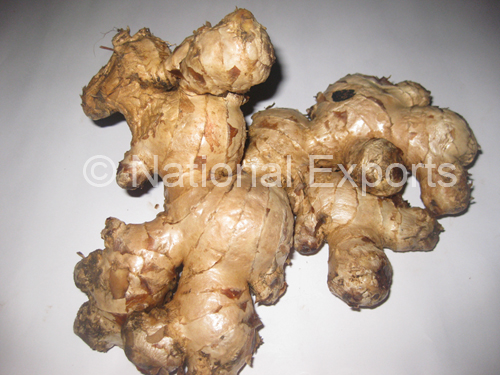
Ginger
As Ginger production has increased significantly, Nepal has become the world’s third largest producer of ginger after India and China, according to the statistics of the Food and Agriculture Organization (FAO) of the United Nations. The country produced 216,289 tonnes in 2011 compared to the global output of 2.02 million tonnes.
The production increased marginally by 2.6 percent in 2011 compared to 2010. However, output has jumped 146 percent in the last decade. In 2002, the production was recorded at 87,909 tonnes.
Officials at the Ministry of Agriculture Development said that the export value had encouraged farmers to go for commercial farming. “Demand for ginger has been increasing due to its growing export value,” said Prabhakar Pathak, spokesperson at the ministry.
About Ginger,
From the ancient Chinese and the Romans, to mothers of poorly children worldwide, for thousands of years now ginger has been used as a spice and a medicine. Although it is commonly described as a root, it is in fact a rhizome, a stem that grows out from the plant underground, and from which small roots will sprout, as well as new green shoots.
Ginger’s most well-known medicinal use is as a digestive-aid, to relieve tummy pain, nausea and diarrhoea, as well as morning sickness and travel sickness. This is thought to be because of the spice’s high levels of gingerol; a powerful component that gives it its natural zingy flavour, and which acts as an anti-inflammatory in the body.
It has lots of benefits to human health and can be a good medicine for many diseases. read our herb detail page from the link below to know more.
More Info and Benefits of Ginger
___
National Exports exports and processes ginger to various third countries. We can provide you fresh and dry ginger in any quantity. Contact us for wholesale enquiry.







